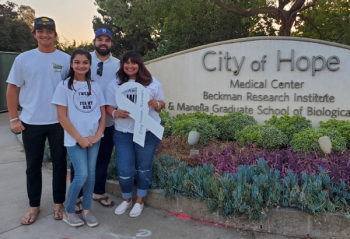
A young mother and athlete discusses receiving a shocking diagnosis of stage 4 lung cancer and her incredible response to treatment with a single, targeted drug.

Darlene Dobkowski, Managing Editor for CURE® magazine, has been with the team since October 2020 and has covered health care in other specialties before joining MJH Life Sciences. She graduated from Emerson College with a Master’s degree in print and multimedia journalism. In her free time, she enjoys buying stuff she doesn’t need from flea markets, taking her dog everywhere and scoffing at decaf.

A young mother and athlete discusses receiving a shocking diagnosis of stage 4 lung cancer and her incredible response to treatment with a single, targeted drug.

A patient with recurrent basal cell carcinoma discusses his cancer journey, his latest challenge and how he’s now prioritized quality of life over quantity.

Although a gynecologic oncologist has spent a good part of her career helping patients during their cancer journeys, she took it upon herself to take one step further to educate women on how they can advocate for themselves and potentially prevent cancer before it impacts their lives.

Although most patients reported satisfaction after undergoing a mastectomy without breast reconstruction surgery, 20.7% of women felt that their surgeon was not supportive of their decision to do so.
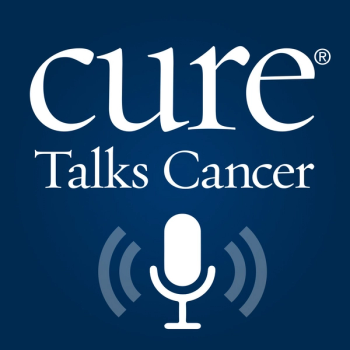
In this episode of the “CURE Talks Cancer” podcast, we spoke with a gynecologic cancer expert about how her sister’s journey with ovarian cancer provided her with a different perspective that would lead to raising awareness for others.

Two evaluations for treatment responses in women with ovarian, fallopian tube or primary peritoneal carcinoma may need to take into consideration other factors such as other existing conditions.

Former longtime Kansas senator Bob Dole announced that he will be undergoing treatment for lung cancer next week.

Although physical effects of cancer may be well known, people often overlook the emotional responses that patients with cancer experience.

Patents with HER2-positive breast cancer had a similar rate of overall survival with Perjeta plus chemotherapy and trastuzumab compared with placebo plus chemotherapy and trastuzumab, although longer follow-up is needed to determine whether a benefit exists in that area.
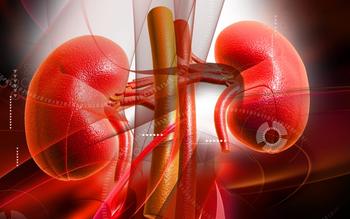
A higher starting dose of Lenvima, compared with a lower starting dose, prolonged the time that patients with renal cell carcinoma experienced negative effects on factors including social and physical functioning, financial difficulties and cogitative functioning over time.

Women who underwent radiation after cancer surgery had improved distant metastases-free survival rates, although this benefit was not evident in overall survival.
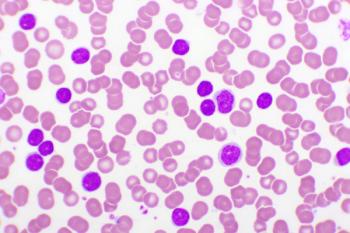
Onureg, an oral form of the chemotherapy azacitidine, in older patients with acute myeloid leukemia who were in remission after chemotherapy contributed to longer survival outcomes, compared to placebo.

A survey conducted by the LUNGevity Foundation determined that 96% of patients with lung cancer felt that they were concerned about the COVID-19 pandemic affecting their treatment.

In a survey conducted by the Cancer Support Community, 33% of patients with lung cancer reported they were somewhat or not at all involved in the decision-making process, and 66% were not as knowledgeable about their treatment options as needed to make this decision.

Tecentriq with carboplatin and etoposide led to a median overall survival rate of 12.3 months versus 10.3 months in those assigned placebo, carboplatin and etoposide, although the death rate was high at a median follow-up of 22.9 months.

At three years, overall survival in men with nonmetastatic, castration-resistant prostate cancer treated with Nubeqa was 83% compared with 77% in those who received placebo.

Findings from a study focused on patient-reported experiences, found that aching joints, aching muscles and fatigue were more common than initially found in clinical trials.

The priority review will focus on Opdivo with chemotherapy for the treatment several gastrointestinal cancers, which has recently become a rising area in novel treatment development.
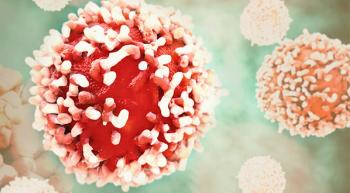
Quality of life improved in patients treated with Darzalex, Revlimid and dexamethasone compared with Revlimid and dexamethasone, and were present regardless of age, functional status and the depth of their treatment response.

The other half of the Siegfried and Roy duo famous for their Vegas act died on Thursday from terminal pancreatic cancer.
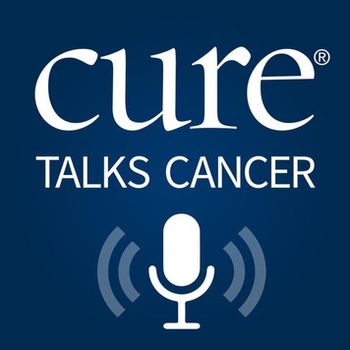
In this episode of the “CURE Talks Cancer” podcast, we spoke with someone who has undergone 41 surgeries and physically debilitating treatments during his more than 15-year journey with several cases of skin cancer. We discussed his cancer journey, and why, as he starts a new treatment after his most prior therapy failed, he’s focused on quality rather than quantity of life.
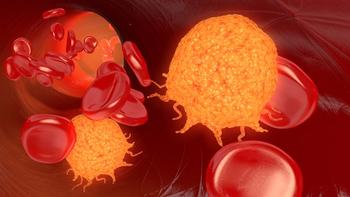
Melflufen with dexamethasone was an effective treatment option for patients with relapsed or refractory multiple myeloma previously treated with a specific chemotherapy drug and/or an anti-CD38 monoclonal antibody.

Researchers observed the benefit of adhering to a Mediterranean diet in all men, in addition to non-White men and those without diabetes.

Patients older than 75 years experienced more toxicity with mTOR inhibitors, tyrosine kinase inhibitors and checkpoint immunotherapy compared with those younger than 75 years, but researchers found that age did not impact outcomes like progression-free survival and overall survival.

A gynecologic oncology expert from the University of California, Davis reviewed early-stage ovarian cancer and the importance of knowing what options are available before, during and after treatment.

The company has withdrawn the small cell lung cancer indication for Opdivo (nivolumab) based on discussions with the FDA, particularly focused on post-market studies that missed their primary endpoints of overall survival.

In participants who reported that the pandemic negatively impacted their decision to enroll in a clinical trial, some of the most common reasons included exposure to the virus and limited access to care.

In an interview with CURE®, Dr. Wade T. Iams discussed small cell lung cancer, a subtype of lung cancer that starts from neuroendocrine cells in the lung, how different stages are treated and the potential benefits of having a treatment team to communicate with every step of the way.

The Food and Drug Administration lifted a clinical hold on the MELANI-01 trial, evaluating UCARTCS1A, a CAR T-cell product in patients with relapsed or refractory multiple myeloma.

The study found that the risk increased despite receiving care at a highly specialized center, although neighborhood poverty did not have the same degree of impact on children with the nonmalignant disease.